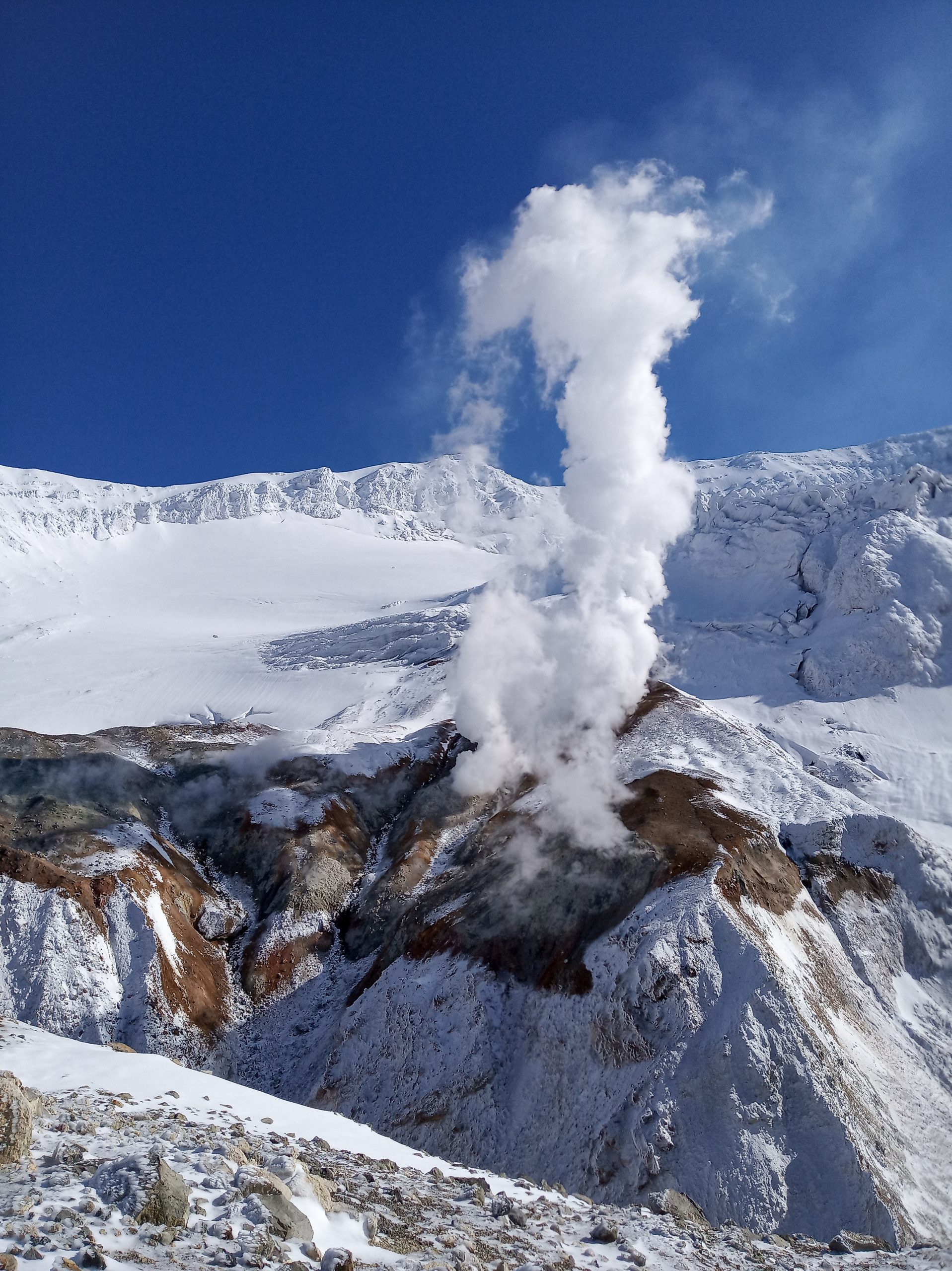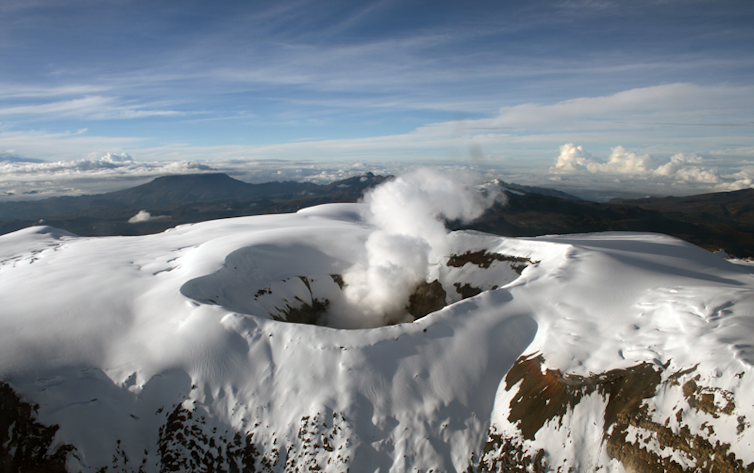Environment & Nature
Glaciers can give us clues about when a volcano might erupt

Globally, there is about one volcano erupting each week. (Pexels Photo)
Globally, there is about one volcano erupting each week. Volcanic unrest kills an average of 500 people every year and costs the global economy roughly US$7 billion (£5.7 billion). With one in 20 people living somewhere at risk of volcanic activity, every effort that can be made to improve the monitoring of volcanoes is important.
This is especially true for volcanoes covered by glaciers – roughly 18% of all volcanoes on Earth. When these erupt, the consequences can be among the deadliest of all natural disasters.
The Nevado del Ruiz volcano in Colombia killed nearly 25,000 people in 1985 when its eruption caused the near-instantaneous melting of overlying glacier ice and snow, forming a deadly mix of water and eruptive material (mostly ash and gas) that hurtled down a populated valley at incredible speed. Glaciers on volcanoes are not only dangerous, they make monitoring volcanoes from the ground and from above using satellites particularly tricky.

Portal Servicio Geológico Colombiano, CC BY-SA
Fortunately, in a new study, we found that these glaciers can offer clues about what’s happening to the volcano below. This could help improve the monitoring of volcanoes that might erupt in the future.
Hotting up
Research has tentatively revealed that volcano temperatures change over time and increase towards an eruption. In some cases, these changes can be recorded over several years before visible unrest begins. It’s possible to monitor this via satellite, but the signal can be masked by clouds or disrupted by the ice or snow sitting on top of a volcano.
Although thought to move very slowly, glaciers are quite dynamic. These rivers of ice flow faster or slower depending on what’s happening in their environment. This may come as no surprise – most glaciers around the world are now shrinking due to rising global temperatures, and many will soon disappear.
But glaciers are sensitive to other changes too. For example, if a volcano’s temperature increases over time, the glacier sitting on it will melt faster and shrink to higher elevations. We thought this shrinking might indicate that something is brewing in the volcano below, so we analysed the elevation of 600 glaciers that either sat on or near (between 1km and 15km) 37 ice-clad volcanoes in South America using computer models.
Normally, elevation does not vary much from glacier to glacier within the same climate region. But our results showed that, in some cases, glacier elevation progressively decreases with distance from a volcano. In other words, glaciers further from a volcano tended to reach further down the mountain valley that hosted them.
The drop in glacier elevation moving away from a volcano can be as much as 600 metres. This is bigger than what we would expect to see with natural variation alone, especially for the relatively small glaciers we investigated.
A sign from below
Glaciers sitting on volcanoes are typically confined to higher elevations (230 metres higher, on average) compared with those nearby. Most importantly, our study showed that this difference is linked to measured volcanic temperatures: volcanoes with higher measured temperatures hosted glaciers at particularly high elevations.
This is really exciting because it paves the way for using glaciers to improve volcano monitoring. If the elevation of a glacier on top of a volcano changes over a short period (five to ten years, say), and the speed of this change cannot be attributed to climate change, it might signal a forthcoming period of volcanic unrest.
Glaciers sitting on volcanoes act as icy thermometers in volcano monitoring. This insight could help create early-warning systems capable of reducing the deadliness of erupting ice-clad volcanoes.

Don’t have time to read about climate change as much as you’d like?
Get a weekly roundup in your inbox instead. Every Wednesday, The Conversation’s environment editor writes Imagine, a short email that goes a little deeper into just one climate issue. Join the 20,000+ readers who’ve subscribed so far.![]()
Matteo Spagnolo, Professor of Geography and the Environment, School of Geosciences, University of Aberdeen; Brice Rea, Professor of Geography, University of Aberdeen, and Iestyn Barr, Reader in Physical Geography, Manchester Metropolitan University
This article is republished from The Conversation under a Creative Commons license. Read the original article.





















